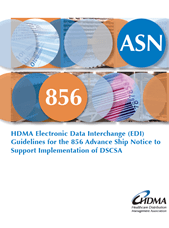 When the U.S. Drug Supply Chain Security Act (DSCSA) was signed into law last November, it introduced a new term into the supply chain lexicon: “Dispenser”. It is unfortunate that the authors chose not to use a more recognizable word—like “pharmacies”, or “hospitals”, or “physicians”—because, if they had, more organizations in the dispensing sector might have taken more notice of the requirements they are facing. But, of course, they could not do that because they wanted to refer to all of those organizations using a single term. All of those types of organizations fall into the DSCSA definition of “dispensers” and the use of that word appears to have led to some confusion, and therefore some amount of complacency.
When the U.S. Drug Supply Chain Security Act (DSCSA) was signed into law last November, it introduced a new term into the supply chain lexicon: “Dispenser”. It is unfortunate that the authors chose not to use a more recognizable word—like “pharmacies”, or “hospitals”, or “physicians”—because, if they had, more organizations in the dispensing sector might have taken more notice of the requirements they are facing. But, of course, they could not do that because they wanted to refer to all of those organizations using a single term. All of those types of organizations fall into the DSCSA definition of “dispensers” and the use of that word appears to have led to some confusion, and therefore some amount of complacency.
“Dispenser” is one of the terms the DSCSA defines so that the rest of the text does not need to repeat the full list of organizations the authors are referring to (see “Don’t Skip The DQSA Definition of Terms Section”). Its definition is only applicable Continue reading Who Is A DSCSA Dispenser?







